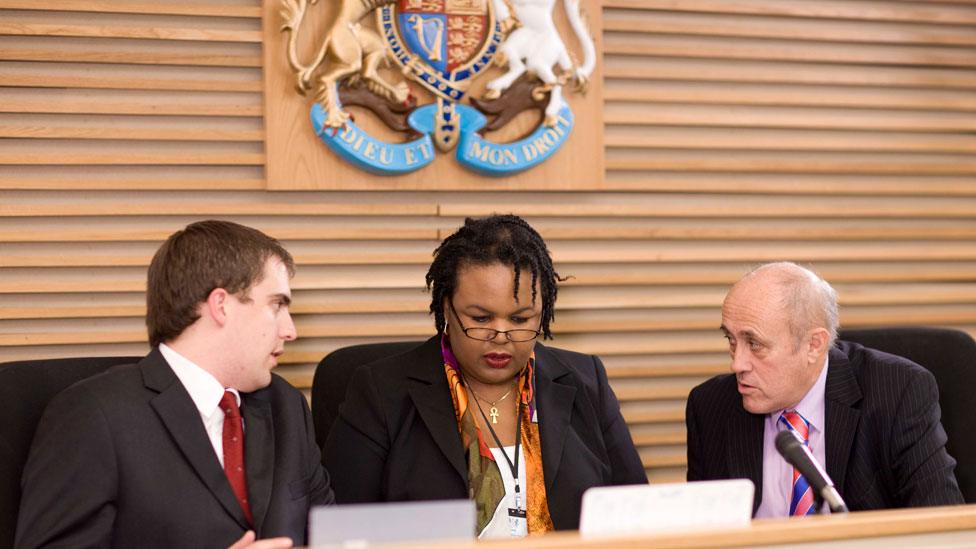More young people needed as magistrates, officials say
- Published

More young people and men are needed to work as magistrates, an official body says.
The Magistrates Association says it wants to be "reflective of society" - and "all young people" should consider becoming one.
Magistrates are volunteers who make decisions on criminal and civil cases in England and Wales.
So what's it like to work as a magistrate? Newsbeat has been finding out from one of the UK's youngest.
The numbers at a glance
In England and Wales, 54% of magistrates are female.
But in some areas of southern England women make up more than 62%.
Only 88 out of almost 17,000 magistrates are under 30 - that's 0.5%.
Magistrates can be appointed from the age of 18 but have to retire at 70.
They deal with more than 90% of criminal cases.
Luke's story
Newsbeat has been speaking to Luke Rigg, who's one of the UK's youngest magistrates.
He became a magistrate aged 20 and is now 23.

What made you become a magistrate?
"I actually went to court with sixth form," Luke says.
"We got to see real cases and I was fascinated. Every day is different.
"All the people were white-haired pensioners. [By contrast] quite a significant proportion of people who turn up in court are young people."
Luke says he wanted to better reflect the people appearing in court.
"More than half of magistrates are over 60. In the next ten years there is going to be a massive gap in filling those spaces," he says.
You don't need formal qualifications or legal training but if you've been found guilty of a serious crime, or been banned from driving recently, you're unlikely to be chosen.

One of the most famous magistrates' courts in the country
You don't get paid so why bother?
Luke appreciates the sense of responsibility that comes with the role.
A magistrate has to hear criminal cases, often deciding if someone is guilty or not.
"The responsibility you get from it and the fact your voice is being heard in that decision process.
"Some of them [decisions] are whether to send them to prison or not."
You don't get paid as a magistrate but you can claim expenses for things like travel.
If you're a magistrate you have to work a minimum of 26 half-days a year. The average is around 35.
Your employer has to give you a "reasonable" amount of time off for your magistrate duties.
When he's not in court, Luke works for a local council in London.
Were you nervous when you sentenced someone to jail for the first time?
"Very nervous. It's slightly surreal when you are doing it," Luke says. He first sent someone to jail when he was 20.
"Sometimes you've got no choice. If you are going to be a magistrate you have to be able to cope with that."
Magistrates can only give jail sentences of up to one-year, but they can refer upwards to the Crown Court if a longer sentence is required.
This would happen with people accused of serious crimes like murders.
"You do take that home with you, think about it on the train. But you have to get over it."
Did you ever doubt people would take you seriously because of your age?
"Definitely. Walking into the room where magistrates sit in between cases, the first few times it's very clear you stick out.
"That can be uncomfortable. Hopefully this will encourage more people to come and there [will be] more of us."
Listen to Newsbeat live at 12:45 and 17:45 every weekday on BBC Radio 1 and 1Xtra - if you miss us you can listen back here